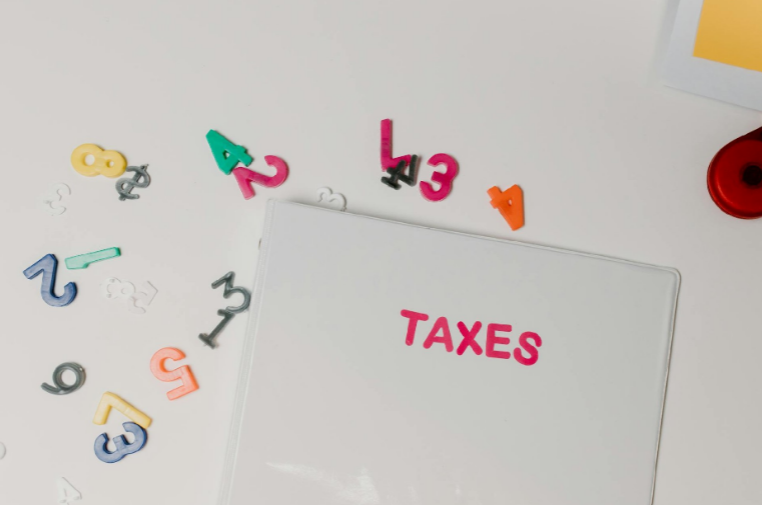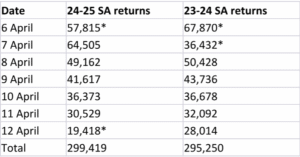
Record Number Of Self-Assessments Sent In First Week Of Tax Year
Just under 300,000 self-assessment tax returns were filed in the first week of the 2025/26 tax year, according to HMRC, way ahead of the deadline of January 31, 2026.
A total of 299,419 tax returns were filed between April 6 and April 12 – 28,503 more than the same period last year. Some 57,815 people filed on the opening day, a Sunday, which was slightly down on the 67,870 who filed on the first day last year. But the figures were impressive during that week as you can see in the table below.

*weekend days
Source: HMRC
Who needs to file a self-assessment return?
There are many different scenarios that might result in you needing to file a self-assessment tax return, including people who:
- Are newly self-employed with a total income of over £1,000.
- Are self-employed and earn below £1,000 and wish to pay Class 2 National Insurance contributions (NICs) voluntarily to protect their entitlement to state pension and certain benefits.
- Have received any untaxed income over £2,500.
- Are renting out one or more properties.
- Claim Child Benefit and they or their partner have an income above £60,000.
- Are a partner in a business partnership.
- Have taxable income earned from savings and investments more than £10,000.
- Have dividend income of more than £10,000.
- Have Capital Gains Tax to pay on assets that were sold for a profit above the Capital Gains threshold.
A full list of who needs to complete a tax return is available on GOV.UK.
Myrtle Lloyd, HMRC’s Director General for Customer Services, said: “Filing your self-assessment early means you can spend more time growing your business and doing the things you love, rather than worrying about your tax return.
“You too can join the thousands of customers who have already done their tax return for the 2024 to 2025 tax year by searching ‘self-assessment’ on GOV.UK and get started today.”
Filing early can help with financial budgeting and spreading the cost of the tax bill over the year if you prefer. You can also set up a budget payment plan to make either weekly or monthly direct debit payments towards your self-assessment tax bill, which will save you from facing a big bill at the end of January, just after the Christmas expense.
If you have overpaid tax, you can claim a refund as soon as the return is processed. If you use the HMRC app, you can check if you’re due a refund. Filing early also means your accountant will have more time to help you make sure your tax return is accurate, resulting in fewer mistakes and potential penalties.
HMRC has updated guidance on filing tax returns early and help around paying tax bills on Gov.uk. Remember, you shouldn’t share your HMRC sign-in details, as someone could use them to steal from you, or claim benefits or a refund in your name.
Let us help you
If you want to file your self-assessment early, then please get in touch and we will do whatever we can to help you maximise the benefits of filing early.








